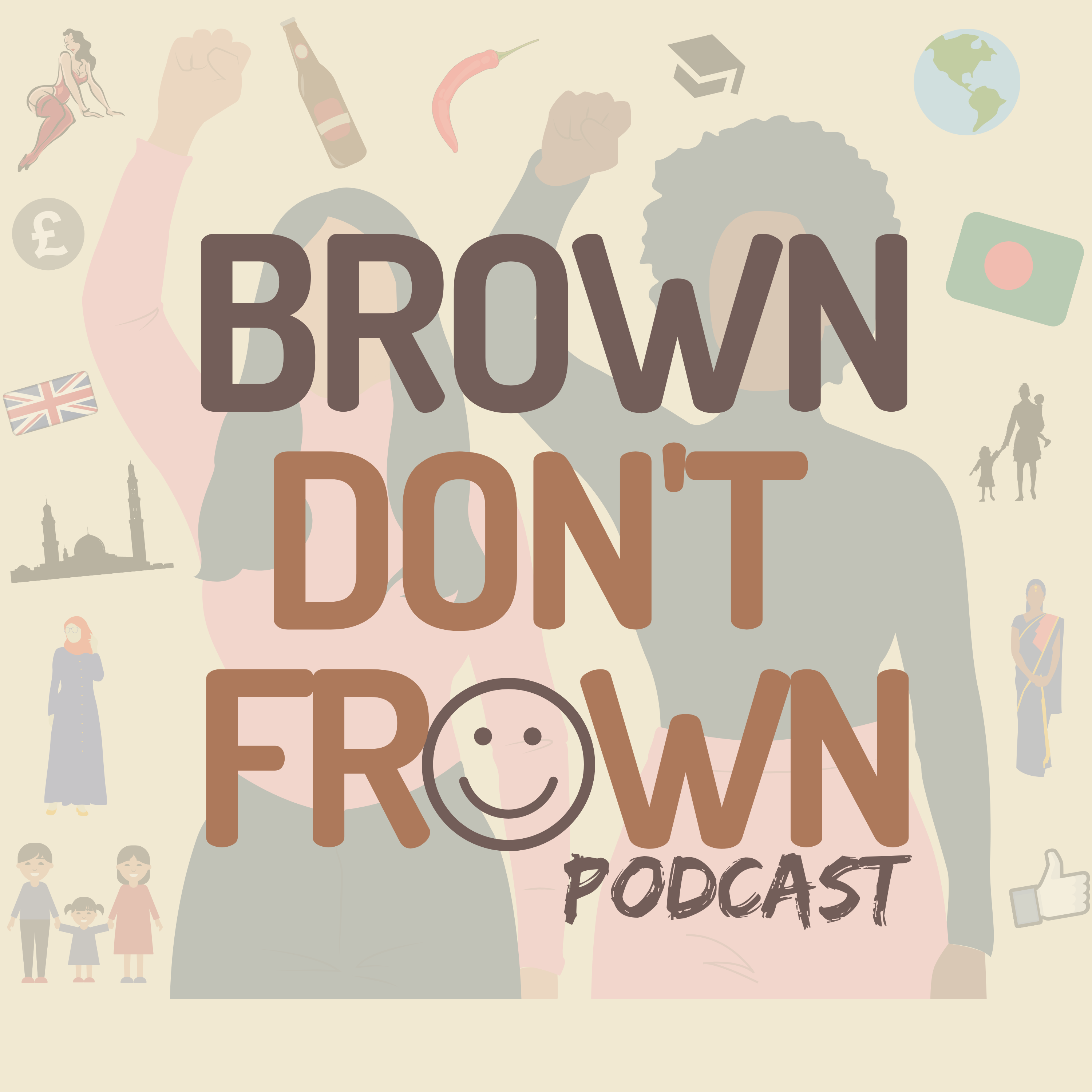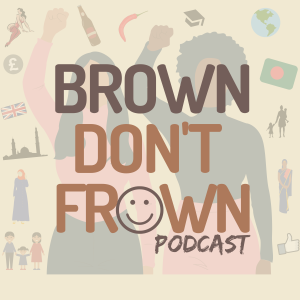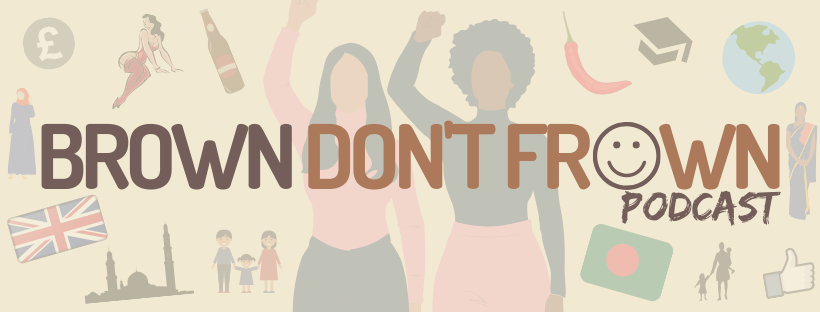
Brown Don't Frown was borne out of a personal journey with womanhood. As a British Bangladeshi, navigating mainstream Feminism often felt exclusionary to me because it didn’t seem to value the experiences or views which shaped my grandmother’s, aunts’, mother’s or friends’ lives. Through this podcast, we seek to build a more inclusive discourse, which breaks down presumptions about different cultures, and shines a positive light on the stories of underrepresented women. Featuring new guest(s) from different walks of life in each episode, Brown Don’t Frown seeks to engage ordinary women and facilitate openness towards entirely new perspectives. It hopes to spark honest and meaningful conversations about intersectional feminist themes in contemporary society with the acknowledgement that our views are shaped by our cultural, racial, religious, social and political experiences. Whether it's discussing society's preconceptions about the Hijab with a British-born Jamaican Muslim woman or examining the impact of gendered expectations on our ability to grieve on our own terms, we hope listeners finish each episode feeling more rounded than they did before. Follow us on: Instagram: https://www.instagram.com/browndontfrownpodcast/ Twitter: https://twitter.com/bdfpodcast?lang=en Facebook: https://www.facebook.com/browndontfrownpodcast LinkedIn: https://www.linkedin.com/company/browndontfrownpodcast
Episodes

Sunday Jan 17, 2021
Sunday Jan 17, 2021
Our first guest of 2021 is Sangeeta Pillai. She is the founder of Masala Podcast and Soul Sutras, a feminist platform tackling taboos in South Asian culture. South Asia is made up of diverse countries, ethnicities, cultures, faiths, and traditions. One thing that we share universally across the continent and beyond, is patriarchy. It forms a part and parcel of our social fabric. As a Keralan born Indian having spent a large part of her life in India, and now in the UK, Sangeeta talks about what intersectionality means to her and the patriarchal values which hold all women back universally.
Sangeeta has spoken openly about sexual empowerment, and while in Britain and in much of the West, sexual confidence has been reclaimed by women, the trajectory is not quite the same in South Asian countries. There is a correlation between inequality and lack of access to sexual and reproductive health facilities, which is often a barrier to sexual empowerment. By contrast, the conservative arm of feminism, both Western and Eastern, might argue the other way, and interpret sexual freedom as promiscuity and we reflect on these contrasting attitudes.
Globally, South Asian women have made significant inroads in industries including tech, medicine, scientific research and film-making. While that’s progress, we’ve also seen the personification of Indian “aunties” in mainstream television, with shows like Indian Matchmaker and Never Have I Ever, which highlight examples of internalised patriarchy. Societal structures shape our way of thinking. South Asian cultures centre around multi-generational extended families and strong communities, while in the West, the focus is on individualism and self-sufficiency. These structures still dominate women’s positioning, especially because women were designated home-makers up until relatively recently. We reflect on the impact of these structures on women and how they have evolved over time.

No comments yet. Be the first to say something!